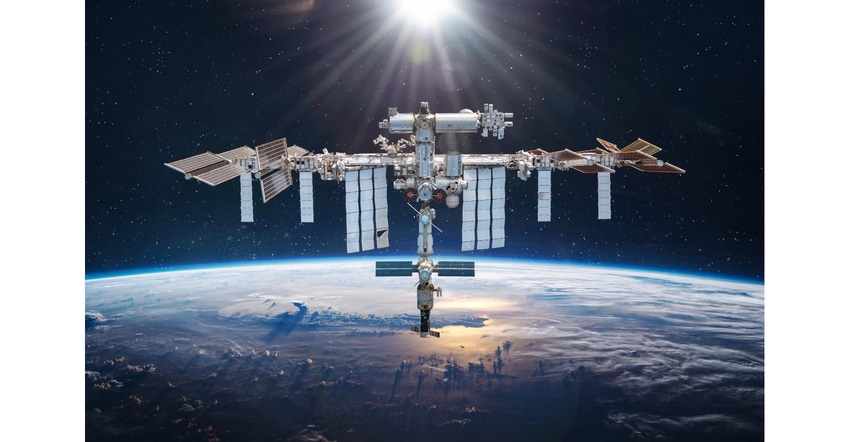Bristol Myers Squibb Heads to Outer Space
A team of scientists from the pharmaceutical company again sent experiments into space, where microgravity conditions better support protein crystallization.
March 24, 2023

A Bristol Myers Squibb biotherapeutics experiment hitched its second ride to the International Space Station last week.
The pharmaceutical company sent a selection of its protein-based medicines to the station’s national laboratory to investigate how to better produce them.
Over several months, researchers will study protein crystallization occurring in the space station’s weak-gravity environment, conditions in which crystals can grow larger and more well-ordered, according to an International Space Station National Lab release.
The findings could help Bristol Myers Squibb improve the biomanufacturing of potent medicines, like those used to treat cancer. More specifically, it could allow them to reformulate medicines to be given as injectable doses, rather than intravenously.
“Microgravity gives us higher-resolution crystals that offer information we can leverage for designing new drugs,” said Robert Garmise, associate director of material science and engineering at Bristol Myers Squibb, said in the release. “High-quality crystals grown in space give us a better understanding of how the molecules interact than is possible on Earth.”
The research materials will head into space as part of a resupply mission with SpaceX. The company last sent proteins into space in 2020, after its research proposal on protein crystallization in microgravity was selected by NASA.
This research started in summer 2018, when Bristol Myers Squibb responded to a request for proposals from the Center for Advancement of Science in Space (CASIS), a nonprofit organization and manager of the International Space Station National Laboratory (ISSNL). That research led to the first space mission in 2020.
The objective for this second mission is similar — identify the physical conditions that result in large, high-quality crystals in microgravity, which could lead to a better understanding of how to one day make some of our biologics medicines in crystal form. A crystallized therapeutic could have greater stability and a more concentrated dosing strength.
BMS isn't the only company seeing stars. In spring 2022, NASA awarded funding to eight manufacturing companies to send projects to the International Space Station for further development, including work in stem cell therapies, photonics, and additive organ manufacturing.
About the Author(s)
You May Also Like




